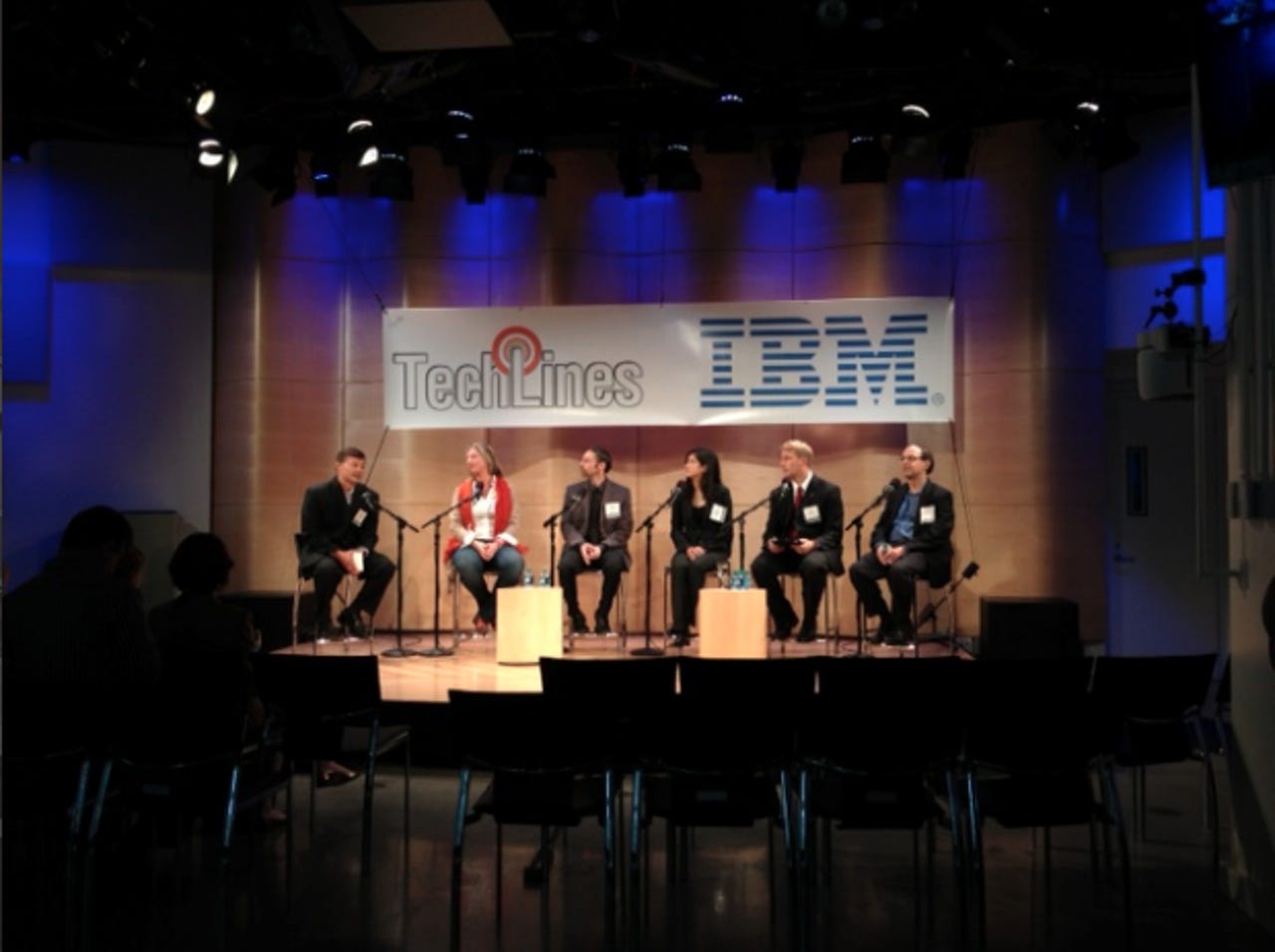5 things you missed at ZDNet's TechLines event on big data last night


Last night was ZDNet's first TechLines event in the U.S., our international series where we gather industry experts in one spot to talk shop about a topic that resonates in business technology.
We had Nicholas Skytland of NASA, Michael Cavaretta of Ford, Katrina Montinola of Archimedes, Christine Twiford of T-Mobile and James Kobielus of IBM on hand to offer anecdotes and advice on how companies can use big data to get ahead.
ZDNet editor-in-chief Larry Dignan moderated the discussion; we livestreamed the whole thing yesterday. (We've since made available a video of the entire event, which you can watch here.)
If you weren't able to join us, five things you missed:
1.) "Data is the new oil of the Information Age." NASA's Skytland explains how important this data is to enterprises. Of course, they need to know how to refine it, so to speak. "There's real value in being able to manage and understand your dataset," he said.
2.) We need more data scientists. "We're not finding enough data scientist talent out there," Ford's Cavaretta said, which involves a "unique blend" of computer science and statistics. The challenge: it's not just a matter of training, but finding someone with the instinct to know what someone really wants out of the data, rather than what they're asking for. NASA's Skytland added: "The data scientist is made out to be the Renaissance man of our age."
3.) Future advances offer tantalizing possibilities. IBM's Kobielus mentioned "whole population analytics," which puts behind it the concept of data sampling. Storing petabytes of data and having it accessible in real time is not out of reach -- which means you can learn a lot about your customers. "You can get an X-ray view of what's going on inside their heads," he said.
4.) Big data helps companies make business decisions. T-Mobile's Twiford explained the ways that the U.S. wireless carrier uses big data, all centered around customer service or smarter deployment of resources. "We learned that people only watch first 10 seconds of a YouTube video before they decide they're going to watch it or not. So we only cache 15 seconds, maybe, instead of 30." She added: "It's about research, it's about experimentation. We start with our customers."
5.) Cramming big data into small budgets is possible. The challenge is making the right decisions so the right data is available at the right time. "'Just in case' storage is not a reality for us -- hard disk space is expensive," Archimedes' Montinola said. "Eventually some data has to go to tape. Now, can you find and restore what you need in time?"